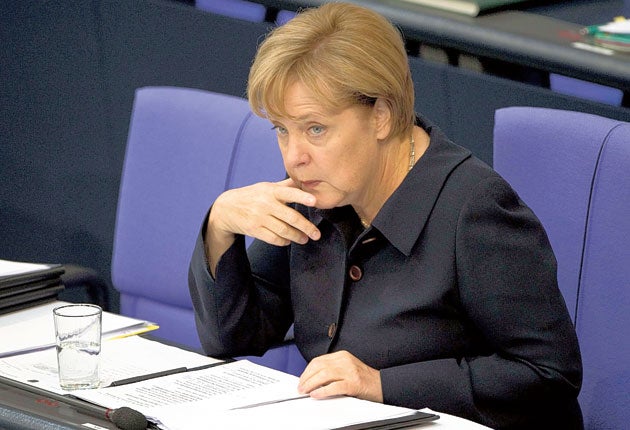Ben Chu: Euro is safe for now but twitchy markets may not tolerate more delays


As expected, cataclysm was avoided. The German Constitutional Court in Karlsruhe ruled that the emergency measures to safeguard the future of the single currency did not break national law. If the court had come to the view that the bailouts were illegal, European financial markets would have lurched into a fresh panic in anticipation of a messy break-up of the eurozone.
But there are dangers in the judgment nonetheless. The court made it clear that the German parliament must approve any future bailouts. If the parliaments of other eurozone nations decide they should have a similarly hands-on role over future emergency efforts to stabilise the single currency, the rescue mechanism could become so sclerotic as to be useless.
Germany, though, is the leading actor in this drama. The Brussels rescue deal is moving painfully slowly through the Bundestag. The vote on 29 September will be limited to the question of whether the powers of the €440bn fund (the European Financial Stability Facility) should be extended. The vote on whether to approve the new €109bn Greek bailout will not be held until next month. And the Bundestag is not expected to decide on whether to sanction a new permanent stability fund to replace the temporary EFSF until December.
These delays in ratifying a deal agreed between eurozone governments back in July are already severely testing the nerve of financial markets. The interest rates on Italian and Spanish bonds, which fell after the European Central Bank started buying them up last month, have been creeping up again in recent days, putting more pressure on Madrid and Rome.
Democratic oversight of pan-European loans is important. Decisions are being taken here that will affect the future of every citizen in the eurozone. Yet there is a problem when parliamentary timetables lag so far behind those of panicking investors. The danger is that the single currency will unravel before parliaments have got round to holding their debates.
Does the flighty mood of investors really matter? Not everyone thinks so. A civil servant in the German finance department advised me last month "not to be too nervous about what the markets do every single day". So does that represent admirable calm, or deluded hubris? We could be about to find out.
Join our commenting forum
Join thought-provoking conversations, follow other Independent readers and see their replies
Comments
Bookmark popover
Removed from bookmarks